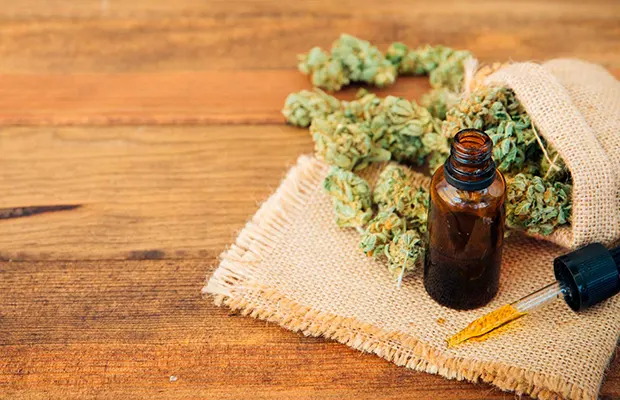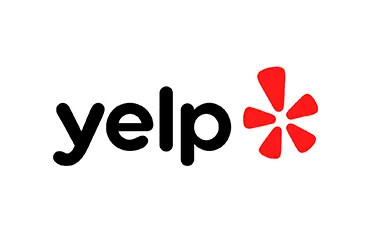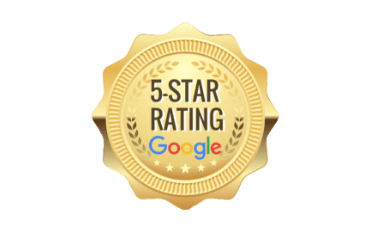
Still Hustling: Hemp Profits over Patients
The hemp oils market got its start a decade ago, with the winds of change blowing towards a relaxing of the regulatory environment around cannabis. A huge player in this new scene, Medical Marijuana Inc., actually began as Berkshire Collection, a shell company recognized by the Securities and Exchange Commission (SEC) as part of the fraudulent company Blackout Media. Founded by two former marijuana smugglers, Berkshire went through several names as it sought new investors to buy into their lofty visions of the companies future, just to “reverse split” the stock and squeeze the smallest shareholders out of their money.
The queue that there was a new market for cannabis-related products was CNBC’s invitation to one of the owners to be interviewed about his marijuana smuggling past. Publicity like this could not be allowed to go to waste, so the company (now Club Vivanet, Inc.) changed its name to Medical Marijuana Inc. (MJNA). Between that moment and the publication of Project CBD’s “Hemp Oil Hustlers,” Medical Marijuana Inc. splurged in spin-offs and shell companies that included: a marketing campaign called “The Hemp Network” which became Kannaway; being purchased by another front called Hemp Deposit and Distribution Corp.; creating HempMedsPX and morphing it into HempMeds; Ace Hydro; CanChew BioTechnologies; and many others. This shape-shifting continues to the present day.
Ballot measures to broaden access to cannabis in Colorado and Washington coincided with a critical moment in the history of Medical Marijuana Inc. The acting CEO, Michael Llamas, had just been indicted on mortgage fraud for his role in a separate “massive, multi-state ponzi scheme,” leading to his formal resignation from the company.
And Michael Monas, one of the directors at the MJNA subsidiary Red Dice Holdings, took the helm at Las Vegas-based Forclosure Solutions and renamed it CannaVest. Llamas, who still retained large portions of MJNA’s ownership, operated behind the scenes to partner with CannaVest, becoming the distribution network of Cannavest’s imported hemp-based products. Before this, another MJNA-affiliated firm stepped into the CBD market, and had major issues that forebode CannaVest’s eventual track record. Denver-based Dixie Botanicals was the first company to nationally market cannabidiol as a general health supplement.
Through 2012 and early 2013, testing of its CBD products nationwide often revealed CBD levels well below what was advertised. Even for its THC products, marketed only in Colorado, testing showed a wide variation in their actual THC content. When the affiliation turned sour over internal politics, Dixie’s chief scientist resigned and publicly attacked the production practices of both companies, going as far as to state that the process created something “unfit for human consumption,” and from a “dirty hemp paste contaminated with microbial life.”
At this point, Cannavest’s own subsidiary U.S. Hemp Oil assumed responsibility for production. A few months later KannaLife Sciences, another artificial MJNA subsidiary, was awarded a patenting license to commercialize CBD, in the form of drugs meant to treat hepatic encephalopathy. It should come as a surprise that the executive director of KannaLife is the same Dean Petkanas who was the CFO of the corrupt company featured in The Wolf of Wall Street; it should also come as no surprise that the U.S. government awarded him this patent anyway.
Able to claim legitimacy due to CannaVest’s relationship with MJNA and KannaLife’s “exclusive rights to NIH patent #6630507,” and coinciding with the explosion of interest in medical cannabis following Sanjay Gupta’s CNN exclusive on medical marijuana, U.S. Hemp Oil aggressively pushes “Real Scientific Hemp Oil” (RSHO) nationally.
As the Project CBD report notes, when it came to Dixie’s hemp products, “quality control has not been Dixie’s strong suit,” a pattern that continued with CannaVest. In the fall of 2013, executives from HempMeds (now in charge of marketing for both MJNA and CannaVest) reached out to the Krenzler family, whose daughter Brave Mykala was taking high-THC medications to moderate the side-effects of her chemotherapy.
Despite being told that she responded best to oils with greater dosages of THC, the HempMeds executives insisted on offering free samples of RSHO – specifically, if they agreed to spread the word and sell it to their friends – and her parents relented. Mykala developed severe stomach pain soon after trying RHSO for the first time, as did her father when he took a dose. When HempMeds denied that there was anything wrong with their tincture, the family sent samples to Project CBD, who forwarded it to the analytical lab PhytaTech along with samples from a Crohn’s patient who complained of cramps and from CannaVest directly.
PhytaTech found hexane, a highly toxic solvent, in the samples that created immediate symptoms in the patients – most of the other samples were clean. This was further examined by the DEA registered lab Flora Research Technologies, which found hexane, butane, pentane, and ethyl acetate in the samples. In early 2014, Brittany Warrior sent a sample of RSHO to Jason Cranford, a widely respected cultivator of CBD-rich strains, stating that it had hospitalized her daughter who was taking it to manage her epilepsy. His testing revealed a THC level above the 0.3% legal limit, and another lab in Fort Collins, Colorado, found high levels of arsenic, selenium, and other toxic metals in the RSHO.
Curiously, the lab issued an amendment to those results a few days later, rebranding the concentrations of metals as “safe” while refusing to share the report stating why a re-test was done, explain why the same technician who allegedly botched the first test was allowed to perform the second, nor offer any other information about this change in the results.
While it is possible that the issues with the Fort Collins lab were just bureaucratic, the history of MJNA’s dealings suggests that the possibility of tampering cannot be ignored. In several incidents, Medical Marijuana Inc. has used its resources to buy legitimacy in ways that are questionable at best. For example, during the meeting with the Krenzler family, one of the HempMeds executives suggested a rebranding as “Brave Mykala Oil,” of the tincture that would soon cause Mykala to double over in pain; naturally, the family shot down the suggestion. MJNA regularly sponsors conferences and advocacy groups, ranging from the National Cannabis Industry Association to the American Herbal Products Association, to boost its credibility.
The best illustration of its tactics was at the Patients Out of Time conference, where the Kannaway representatives signed up under the name of a different company, and then tried to set up a Kannaway and HempMeds booth at the event. The representative was promptly ordered to leave. In another example, CannaVest participated in competitions for the purest CBD concentrate held by the popular online newsletter High Times; each time it won, the competition was sponsored by HempMeds, who then rebranded the win to falsely imply “the prize-winning CBD concentrate is the same as the RSHO products sold over the internet.” Finally, while under investigation by Project CDB, HempMeds reached out to the non-profit to offer a large investment into its organization. As to the timing and the purpose, we will leave that to the reader to guess.
Under growing scrutiny, Medical Marijuana Inc. announced a new marketing drive called the “Don’t Move” campaign in mid-2014. In a bit of irony of which they were doubtlessly aware, the campaign urged patients and families to refrain from moving to states with legalized and regulated medical marijuana programs, and instead to “move to the nearest computer or smart phone” to order their hemp-based product online. Unfortunately, we find many patients who listened to this advertising, and have moved on to professionally managed medical cannabis only after losing money, time, and quality of life. Now that we’ve given the context around the claims made about CBD-rich hemp products, specifically on the sort of entities that make those claims, here are the facts.
It is not legal in all 50 states.
Admittedly, neither is medical cannabis at the federal level, although it enjoys the protection of state laws to varying degrees. Companies like those operating under the MJNA umbrella (which is an uncomfortably part of the market) claim its product is legal in the United States, even after the DEA directly responded that CBD, like all tetrahydrocannabinols, is a prohibited Schedule I substance.
Hemp products are legal only if they contain less than 0.3% THC by weight, if they are imported (this changed in 2014 with H.R. 2642, otherwise known as The Farm Bill, which allowed American farmers to cultivate low-THC hemp), and if the product comes from the seed or stalk only. The 2004 court ruling that crafted this regulation deals only with foodstuffs, and not compounds derived from hemp material. The THC limit is a not a point for consideration here, given that many samples of RSHO, tested by different unaffiliated labs, show a THC level above the legal maximum.
Hemp stalks and seeds are not a rich source of CBD in the same way that the flowers and leaves are.
The reason that the 2004 federal appeals court ruling didn’t consider a CBD level is because no CBD at all is found in the seeds, and a minute quantity is available in the stalk of the plant. The continued mis-naming of “hemp oil” is, according to the Hemp Industries Association (HIA), an attempt to “take advantage of the legal grey area under federal law” and to confuse consumers with respect to protein-rich hempseed oil. Founding member of the HIA Eric Steenstra concludes, “The best source of CBD is high resin strains of cannabis – the drug kind.”
CBD is not extracted from hemp in the same way as the CBD of medical cannabis.
Every website that peddles in CBD concentrates from hemp tout their use of “supercritical CO2” in a process that is free of solvents. This is the same process as what is used to initially extract desired oils from the cannabis flowers and leaves, but the similarity ends there. Before 2014, hemp was entirely imported, and the “hemp paste” used as a source of CBD was a by-product of hemp processing that aimed to pull out the raw fiber needed for textiles and other goods. It was not known from where CannaVest purchased its hemp paste abroad – they refused to say and investigations overseas turned up nothing – and the fact that they sourced it from Europe after 2014 was only discovered by Project CBD’s visit to their labs in-person.
The paste must be further processed before a final extraction can be tried, given the low concentration of CBD in the stalk, huge amounts of plant material are needed to get a significant amount. As hinted at last week, the process for extracting oils from plant material, even using supercritical carbon dioxide as the solvent, is not specific for just one cannabinoid molecule.
This becomes an acute problem with hemp stalk because hemp, grown outdoors, is known as a “bioaccumulator” – any chemicals found in the environment, at even the lowest concentrations, become concentrated in the plant’s tissues. Additional purification is needed to remove the contaminants that have been concentrated alongside the CBD, which is much less of a concern for CBD derived from the flower (high CBD levels mean less plant matter is needed, and medical cannabis is grow indoors).
The hemp-based CBD oil industry is unregulated.
At the time of Project CBD’s visit, CannaVest’s labs lacked the equipment to test for heavy metals, pesticides, and mycotoxins that tend to gather in bioaccumulators in the wild, despite having sold RSHO for over a year. Plus, one of the largest operators in the market had no public information on where they imported their hemp paste from – from where, exactly, is still a mystery. Most importantly for today’s consumers and patients, the complex web of shell companies and subsidiaries has made it nearly impossible to track Medical Marijuana Inc.’s holdings since the publication of Hemp Oil Hustlers.
This is on purpose: the main arm of the company, Kannaway, was positioned to encourage the recruitment of distributors and incentivizes them to find even more distributors. These distributors agreed to buy a quantity of HempMeds product (notably, the agreement forbids the use of Kannaway’s name in any promotional materials) and that their commission increases with the number of other persons they can recruit. This is strikingly like the Federal Trade Commission’s definition of a pyramid scheme, and the scheme fails if anyone catches on. In fact, as of the time of this writing, the founder of CannaVest has been charged with fraud by the SEC.
Not all of the laboratory tests from the major hemp-derived concentrates have come back with poor results. And despite the poor track record, it is conceivable that CBD-rich oils, made from hemp stalks, could be a widely marketed and appreciated alternative for patients. But, the precedent of poor quality control, lack of oversight, and outright lies to the public, should give the reader pause. Today, there is no way to know all of the variations under which MJNA and its owners can present themselves.
A Google search for “hemp cbd oil florida” is telling. One of the first results is a page from marijuanabreak.com, which boldly proclaims that CBD hemp oil comes from “the same exact plant species [as marijuana], which is Cannabis sativa,” (not true, as it is from a different sub-species, and a huge portion of marijuana comes from a different species entirely), that “it’s also legal to be sold and delivered in all 50 states” (the DEA and FDA selectively do not enforce federal law here, and hemp-concentrates are not protected by state law like medical cannabis is), and it is stated that hemp oil “or hemp seed oil as it’s also commonly known, comes from the process of pressing hemp seeds,” (there is no CBD whatsoever in the seeds – the source being the plant’s stalk is completely ignored!). At the bottom of the page, there are links to several vendors of these oils, the first of which is Pure Kana.
Kana, Canna…sound familiar?









